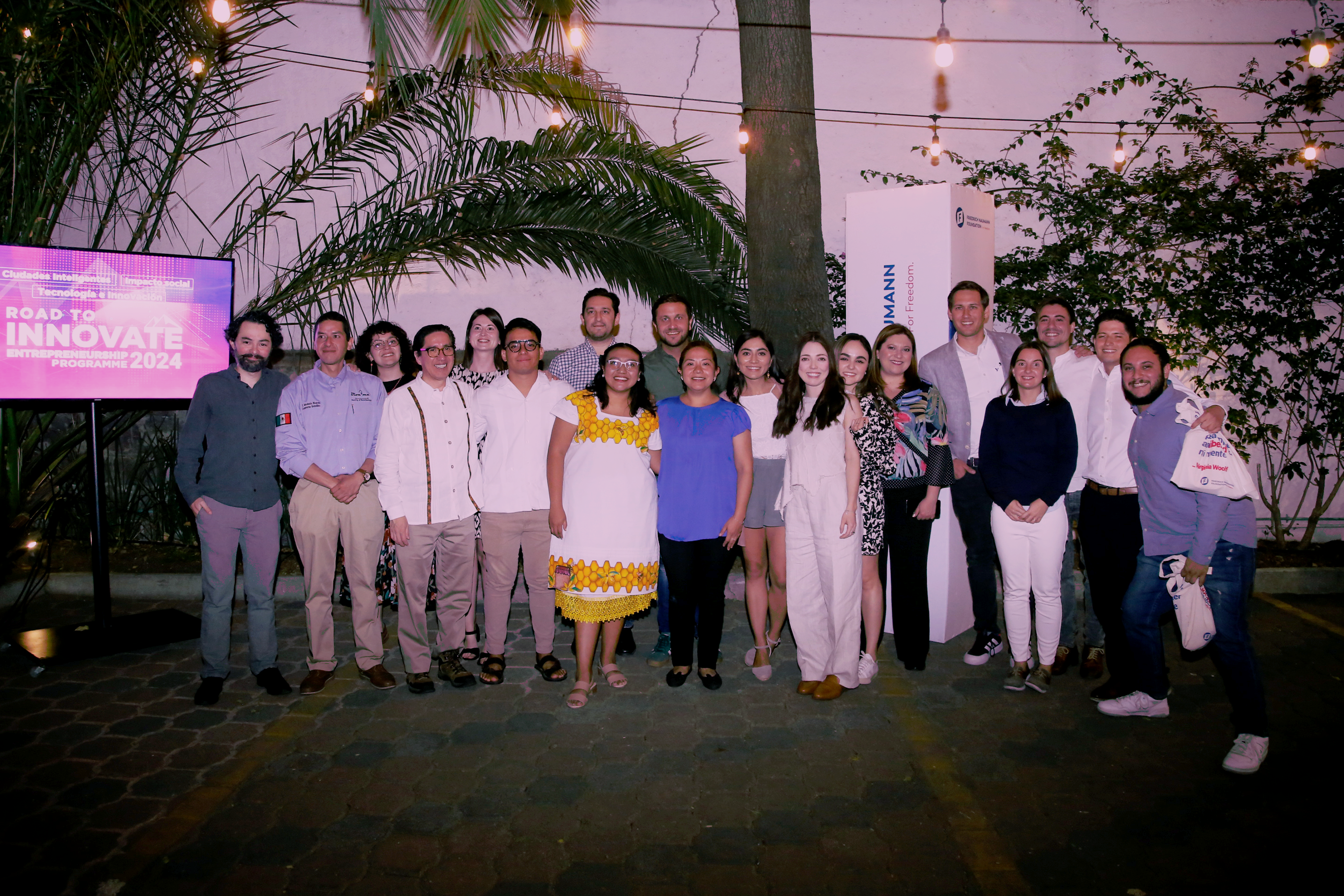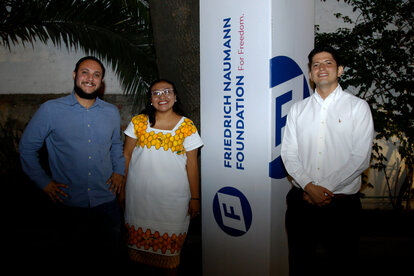Entrepreneurship
Road to Innovate: Driving Change through Social Entrepreneurship in Mexico

Just a week ago, Mexico City witnessed the fifth edition of Road to Innovate, in support of Impact Hub CDMX and with the collaboration of Kolibri. This regional initiative of the Foundation, organized in collaboration with our office in Central America and the Alliance for Central America as part of the regional Innovate Summit program, goes beyond promoting innovation and productivity in our economies. It also serves as a space for reflection on the crucial role that impact entrepreneurship plays in building a more promising and sustainable future for our community.
In today's business landscape, social impact ventures are gaining ground as agents of change that go beyond the pursuit of economic benefits. These ventures, which seek to generate a positive impact on society and the environment, demonstrate that it is possible to do business in an ethical and sustainable manner while addressing problems facing our society.
But what do we mean by “impact” and why are they crucial for Mexico?
Social impact should not be understood as a task exclusive to NGOs or foundations. Twenty years ago, perhaps social entrepreneurship was considered something exceptional, but today, entities such as the Inter-American Development Bank recognize that creativity and entrepreneurship are a key part of the answer to development challenges in Latin America and the Caribbean.
The winners

Panalito Chenero - Social Impact
Panalito Chenero, founded by Denisse Poot, stands out for its commitment to the production of natural and artisanal stamped wax, without adulterants, in an active fight against climate change and the preservation of bees. The initiative uses natural ingredients and environmentally friendly processes, aligning itself with the 2030 agenda. Its product not only contributes to environmental conservation by avoiding the negative impact on biodiversity caused by toxic substances, reducing colony mortality by 10%, but its business model has allowed it to support the local beekeeper's economy, reducing its acquisition cost by up to 20%, creating new nuclei of work and increasing brood production by 80%. Panalito Chenero offers a solution for beekeepers, thus contributing to the economic and social development of the Cheneras communities.
Carbon Power México - Technology and innovation
Carbon Power Mexico, founded and represented by Daniel Cano, is a startup that has set out to address one of today's biggest challenges: the decarbonization of industries. Its innovative technology allows capturing and transforming polluting gas emissions released into the atmosphere into high-value green products. Using gas emissions with a high concentration of carbon dioxide (CO2), Carbon Power Mexico converts them into ethanol and ethylene, which can be used to generate electricity, as fuel and as precursors for plastics. Rather than simply mitigating environmental damage, the startup converts this waste into valuable resources that can be used by other industries, thus contributing to building a more sustainable and environmentally friendly future.
Syntropia - Smart Cities
Syntropia, represented by Luis Landin, is a Mexican environmental venture dedicated to reversing climate change by capturing CO2 from organic waste. Its technological process transforms the waste management system of cities by converting organic waste into biofertilizer, while capturing CO2 and methane emissions. The highlight is that no prior separation of waste is required, and the entire process takes less than 24 hours, surpassing conventional alternatives in efficiency. In addition, Syntropia's technology is in the process of being patented nationally and internationally. They operate a pilot plant processing up to 500 kg of waste per week and successfully market the resulting biofertilizer to agricultural producers and garden stores, thus contributing to the reduction and capture of carbon emissions.
These three winning ventures from the Mexico edition will advance to the regional finals in Guatemala at the end of the year, where they will join the vibrant Innovate community in the region. Their participation not only reflects a commitment to innovation and creativity, but also drives economic development, strengthens competitiveness and fosters job creation throughout the country.
